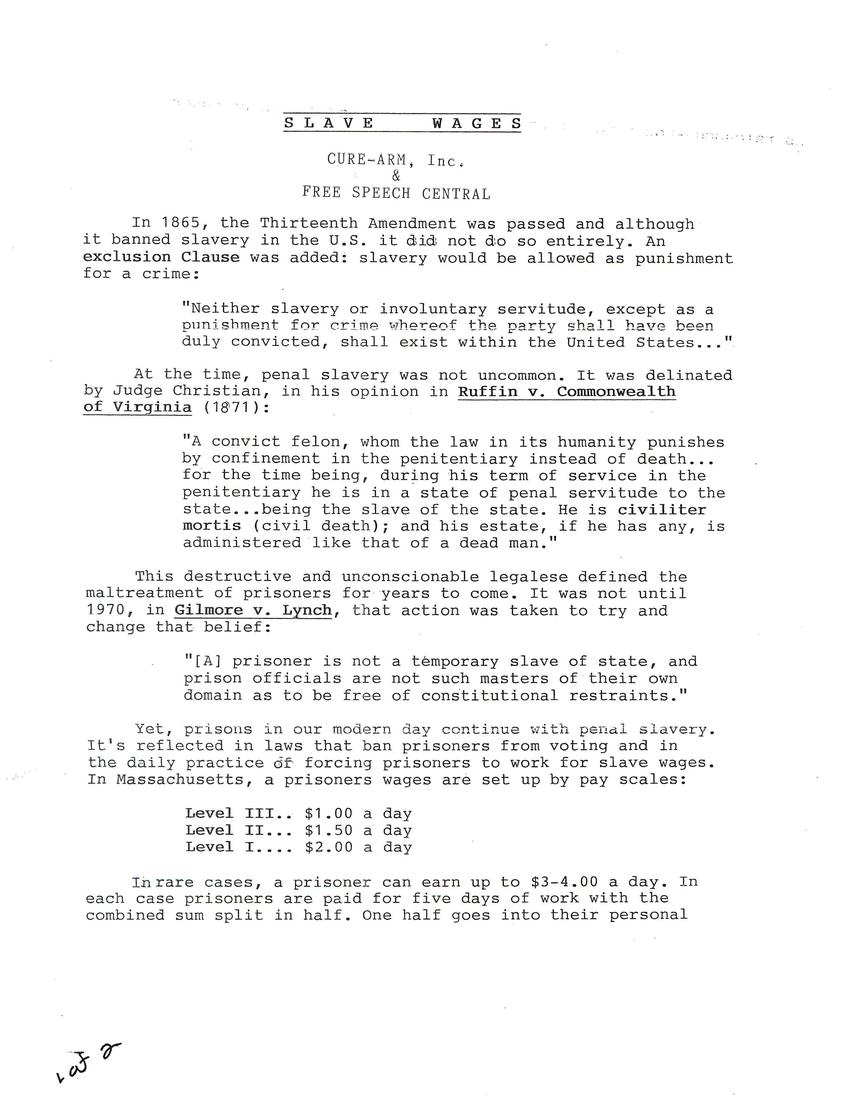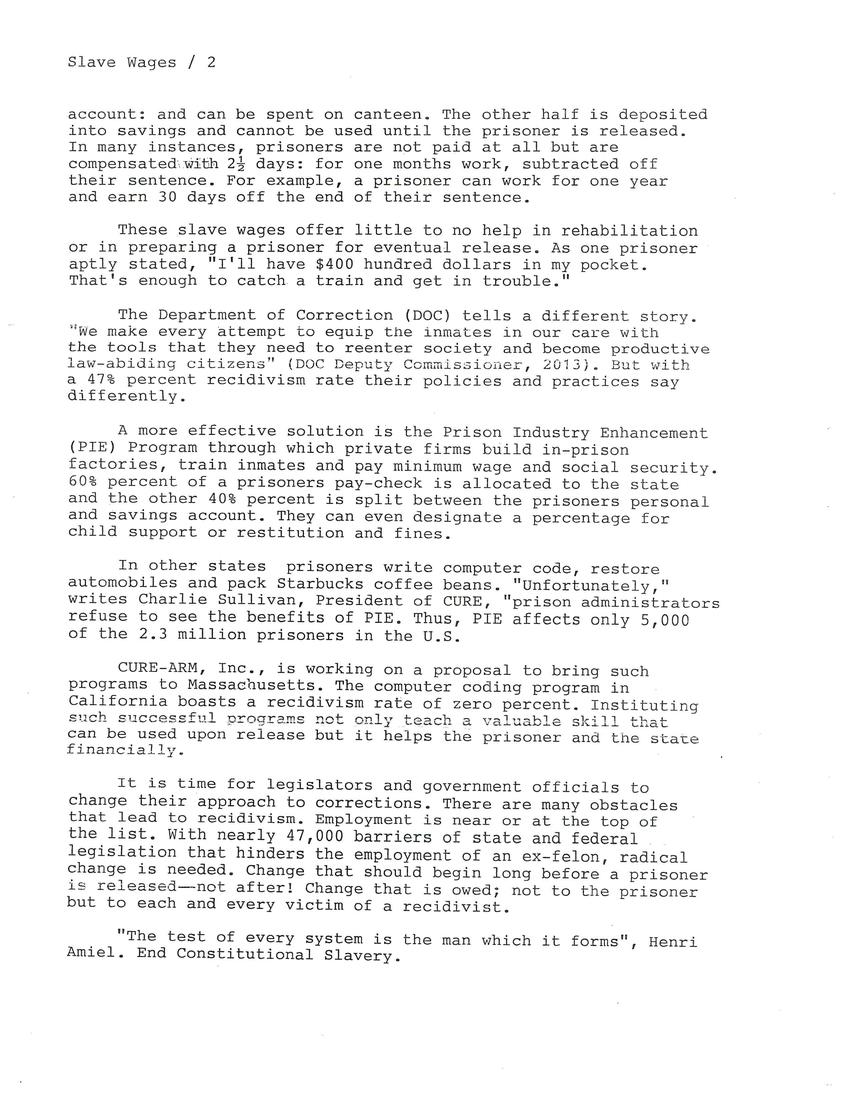
Transcription
SLAVE WAGES
CURE-ARM, Inc.
&
FREE SPEECH CENTRAL
In 1865, the Thirteenth Amendment was passed and although it banned slavery in the U.S. it did not do so entirely. An exclusion Clause was added: slavery would be allowed as punishment for a crime:
"Neither slavery or involuntary servitude, except as a punishment for crime whereof the party shall have been duly convicted, shall exist within the United States..."
At the time, penal slavery was not uncommon. It was delinated by Judge Christian, in his opinion in Ruffin v. Commonwealth of Virginia (1871):
"A convict felon, whom the law in its humanity punishes by confinement in the penitentiary instead of death...for the time being, during his term of service in the penitentiary he is in a state of penal servitude to the state...being the slave of the state. He is civiliter mortis (civil death); and his estate, if he has any, is administered like that of a dead man."
This destructive and unconscionable legalese defined the maltreatment of prisoners for years to come. It was not until 1970, in Gilmore v. Lynch, that action was taken to try and change that belief:
"[A] prisoner is not a temporary slave of state, and prison officials are not such masters of their own domain as to be free of constitutional restraints."
Yet, prisons in our modern day continue with penal slavery. It's reflected in laws that ban prisoners from voting and in the daily practice of forcing prisoners to work for slave wages. In Massachusetts, a prisoner's wages are set up by pay scales:
Level III.. $1.00 a day
Level II... $1.50 a day
Level I.... $2.00 a day
In rare cases, a prisoner can earn up to $3-4.00 a day. In each case prisoners are paid for five days of work with the combined sum split in half. One half goes into their personal
1 of 2
Slave Wages/2
account: and can be spent on canteen. The other half is deposited into savings and cannot be used until the prisoner is released. In many instances, prisoners are not paid at all but are compensated with 2 1/2 days: for one month's work, subtracted off their sentence. For example, a prisoner can work for one year and earn 30 days off the end of their sentence.
These slave wages offer little to no help in rehabilitation or in preparing a prisoner for eventual release. As one prisoner aptly stated, "I'll have $400 hundred dollars in my pocket. That's enough to catch a train and get in trouble."
The Department of Correction (DOC) tells a different story. "We make every attempt to equip the inmates in our care with the tools that they need to reenter society and become productive law-abiding citizens" (DOC Deputy Commissioner, 2013). But with a 47% percent recidivism rate their policies and practices say differently.
A more effective solution is the Prison Industry Enhancement (PIE) Program which private firms build in-prison factories, train inmates and pay minimum wage and social security. 60% percent of a prisoner's pay-check is allocated to the state and savings account. They can even designate a percentage for child support or restitution and fines.
In other states prisoners write computer code, restore automobiles and pack Starbucks coffee beans. "Unfortunately," writes Charlie Sullivan, President of CURE, "prison administrators refuse to see the benefits of PIE. Thus, PIE affects only 5,000 of the 2.3 million prisoners in the U.S.
CURE-ARM, Inc., is working on a proposal to bring such programs to Massachusetts. The computer coding program in California boasts a recidivism rate of zero percent. Instituting such successful programs not only teach a valuable skill that can be used upon release but it helps the prisoner and the state financially.
It is time for legislators and government officials to change their approach to corrections. There are many obstacles that lead to recidivism. Employment is near or at the top of the list. With nearly 47,000 barriers of state and federal legislation that hinders the employment of an ex-felon, radical change is needed. Change that should begin long before a prisoner is released - not after! Change that is owed; not to the prisoner but to each and every victim of a recidivist.
"The test of every system is the man which it forms", Henri Amiel. End Constitutional Slavery.
Other posts by this author
|
2017 jun 24

|
2017 jun 24

|
2017 jun 24

|
2017 jun 24

|
2017 jun 18

|
2017 jun 15

|
More... |



Replies (1)